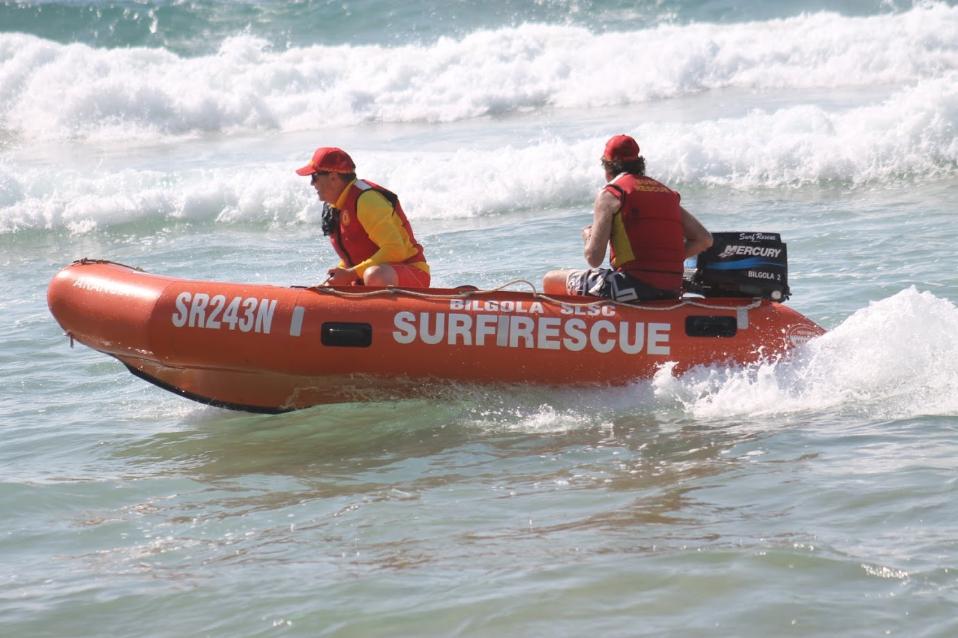Be Water Safe, Not Sorry This Summer
The NSW Government, in partnership with Surf Life Saving NSW, Royal Life Saving Society Australia and Marine Rescue NSW has launched the Be Water Safe, Not Sorry 2018-2019 water safety campaign in response to the number of drownings that occur in NSW throughout Summer.
Tragically too many people lose their life each year at the beach, on rock platforms, in backyard swimming pools, and in rivers, lakes and streams. On average, over the last ten years, 35 people have drowned in NSW every summer, and others have suffered non-fatal drowning incidents often leading to catastrophic injuries. Each drowning incident shatters communities and families, and deeply affects our emergency services personnel and professional and volunteer life savers who respond to these tragedies.
Last year (2017/18) almost half of all drowning deaths in NSW occurred in the summer months. The Be Water Safe, Not Sorry campaign, delivered in partnership with Surf Life Saving NSW, Royal Life Saving Society Australia and Marine Rescue NSW aims to educate people of the very real risks associated with water, and what they can do to ensure they stay water safe this summer.
Key water safety tips
Always supervise children in or near water
Most child drownings occur at home, most commonly in the backyard swimming pool. A lack of adult supervision is the most common factor leading to these deaths. Key points to remember are:
- Don't get distracted by phone calls, a visitor at the door, or attending to other children
- If you have friends over, designate a supervisor so that an adult is always watching
- Ensure your pool fence meets safety standards and the pool gate is securely closed, not propped open.
Find more information on how to Keep Watch of children in and around water.
Don't drink or take drugs and swim
If you drink or take drugs and swim you are putting yourself at risk of drowning. Last summer, 11 per cent of fatal drownings involved drugs or alcohol. This summer:
- Don't drink or take drugs and go swimming or participate in water-based activities
- Be aware that rivers, lakes, streams and dams can be isolated and are not manned by lifesavers
- Keep an eye out for your mates.
Find more information on how drugs and alcohol impact your ability to swim.
No flags means no lifesavers
Nearly 36 per cent of people who drowned last summer did so at the beach, frequently at unpatrolled locations or outside of patrol hours. Be smart and:
- Swim at patrolled beaches, where possible
- Don't swim outside of lifesaver hours at patrolled beaches
- Don't swim beyond your abilities, particularly in unfamiliar waters.
Find out how to be beach safe this summer.
Boating safety
If you're going boating:
- Always wear a lifejacket – don't risk your life.
- Check the weather and plan ahead. Weather can change very easily so always check the most up-to-date weather before you head out. Visit bom.gov.au or download the Bureau of Meteorology phone app.
- Check all your safety gear. Make sure all lifejackets are in good condition and there are enough on board for everyone. Make sure you check your vessel and it is appropriate for the conditions and you have the necessary experience to handle the forecast conditions.
- Stay under the 0.05 blood alcohol limit.
- Always keep to a safe speed for the prevailing conditions.
- Always keep a proper lookout at all times, especially for people in the water, other vessels, structures and the shoreline.
Tell someone when and where you are heading. Log on with your local Marine Rescue NSW unit – on marine radio VHF CH16 or via the free MarineRescue App
Lifejackets
Lifejackets are the most important piece of safety equipment on recreational vessels.
It is a legal requirement that most recreational vessels in NSW carry an approved, appropriately sized lifejacket for each person on board.
Lifejacket must be worn in situations of heightened risk such as:
- Crossing a coastal bar
- When riding a personal watercraft
Underway in a boat less than 4.8m in length when:
- alone
- offshore
- at night
- on alpine waters
- a person is under 12 years of age.
If not required to be worn, they must be stored or placed to allow quick and easy access, and must be either visible to passengers or their location clearly marked.
They must also be in good condition and have no visible signs of wear and tear.
In NSW, it's the law to service your inflatable lifejacket once a year or in accordance with the manufacturer's instructions.
With a wide range of styles and colours available, there's a lifejacket to suit everyone's size and shape so you are able to choose the lifejacket that suits you and your needs.
Penalties apply to the owners and skippers of vessels found not carrying lifejackets, or if there are not enough lifejackets for everyone on board. Penalties also apply if occupants are not wearing lifejackets when they are required to do so or their inflatable lifejackets aren't serviced.
Check www.lifejacketwearit.com.au for more information.
